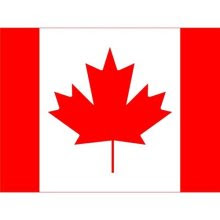If you are reading this, chances are that you know a thing or two about POS systems and how they work. In fact, there is also a good chance that you already have one installed in your retail establishment. However, are you sure that your system is doing everything it can for you and your business? Read on to find out more about what sorts of features every modern POS user should have at their fingertips.
One of the most important factors about using a POS system is that it helps to keep track of inventory; what is available, what needs to be reordered, etc.. However, any point of sale system "worth it's salt" should be able to keep track of inventory by different categories and departments as well, allowing the user not only to compare the popularity of different departments within their store, but also making it so that restocking can be prioritized appropriately. This way, if your company's funds are running lower than usual, you can decide to put more into stocking the categories of items that you know are the best sellers, waiting to restock other, less popular areas until your company's overall financial situation has improved.
Your POS system should also help you prepare for seasonal shifts in the purchasing tendencies of your customers. This means that the software that your POS system utilizes should be able to remember and analyze the sales data from the previous year, and warn you in advance that stocking up on certain items would be wise in order to keep up with the upcoming increase in demand from customers. This sort of feature can be a huge asset for any retail establishment or boutique that specializes in items pertaining to the perennial holidays, as well as retailers of plants and seeds, demands in which rise and fall yearly as the seasons change.
Speaking of inventory, your POS systems should also be able to automatically generate purchase orders for you when supplies get low. It should be programmable as far as "how low is low" for any given item, and then let you know when you should reorder them. This can save you and your business countless hours of doing inventory checks, and can really help avoid down time when you are waiting for stock to show up that should have been ordered previously.
Of course, once you have been made aware that some items do indeed need to be reordered, your POS system should be able to take care of that task for you as well. Most top-quality POS systems nowadays are equipped with the ability to electronically send a purchase order to your suppliers, once again saving you time on the phone reading items off to your suppliers.
Finally, one other essential element to any top-notch POS system is the ability to create "special orders" for customers. This is when a customer wants something that you either are out of or do not usually carry, or is individualized in some way, such as a custom t-shirt of coffee mug. After entering the customer's information into the system (a great way to get email and/of address information for future promotional use, by the way!), the POS system should then be able to remind you that you need to order the item when you order your next big shipment (or immediately, if demand is that great from the customer in question). Then, once the specially ordered item arrives, your POS system should remind you to let the customer know that their item has indeed arrived and is ready for purchase!
So, there you have it, a (somewhat) brief rundown of what all top-of-the-line point of sale systems should be able to do for you and your business. Is your POS system up to par?
お金と体の関係ありの愛人援交尻コキ画像|おまんこgift動画
-
ライブチャトモコム|豊満外人女 援交書き込み鹿児島の女 画像映像男子学生無料女装子アダルトエロ無料出逢いサイト
名古屋女子素人マッサージセックス。童貞掲示板人妻エロ音声浣腸好きな熟女最新セックス無修正動画援交できる出会い […]
4 years ago


No comments:
Post a Comment